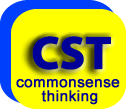


Today's classrooms do use some technology. But this is just a fraction of what can now be offered using current, proven technology. This is a great example of joined up thinking - we have the resources BBC, OU & Future Learn (mooc), we have the technology - Internet, broadband for schools, cost effective large screen & 3D images. There is nothing preventing the UK creating the most advanced training systems for schools and higher education. in the world.
There are two strands here - one is for the teachers & lecturers, the second is for the training process itself.
What should be available for teachers & lecturers?
Teachers often spends days creating their own material. For all ages there should be a central store of high quality material, well thought through plans, with help and training for the implementation. By using experienced teachers in each age group and subject the BBC in conjunction with input from the OU & Future Learn can produce these requirements and hold them centrally. They could also adapt them for other countries and sell them abroad.
Training aides and processes
Children and adults learn by doing and involvement. By utilising interesting, modern, effective, well delivered
'lessons' the recall of the learning points can be greatly enhanced. A good example of excellent, informative programming is the BBC's Planet Earth. Imagine this quality of programming, with quality presenters explaining key issues of each days lessons. The teachers key role is to ensure that it is fully interactive with planned doing processes directly linked in with the programming.


Role play is natures way of teaching us. Look at any natural learning process, the young of many animal species use role play to learn to hunt, fight and forage. Children do the same left to themselves, they create play situations based on their understanding of adult practices. This is fun, involving, socially interactive & effective for learning as each individual is 'doing'.
Why then do we not use them as a key method for training our children in schools? Perhaps it is the difficulty of creating quality, workable role play situations and also the teacher pupil ratio required?
This needs to change if we are to be successful in the improvement we seek and ensure that every child across Britain holds dear the life skills they have been taught in their schools.
The message here is again simple - build-in role play to the interactive learning programming developed by the BBC and provide the teacher pupil ratio needed to effectively use role play as a key method to embed skills & abilities for life skills


